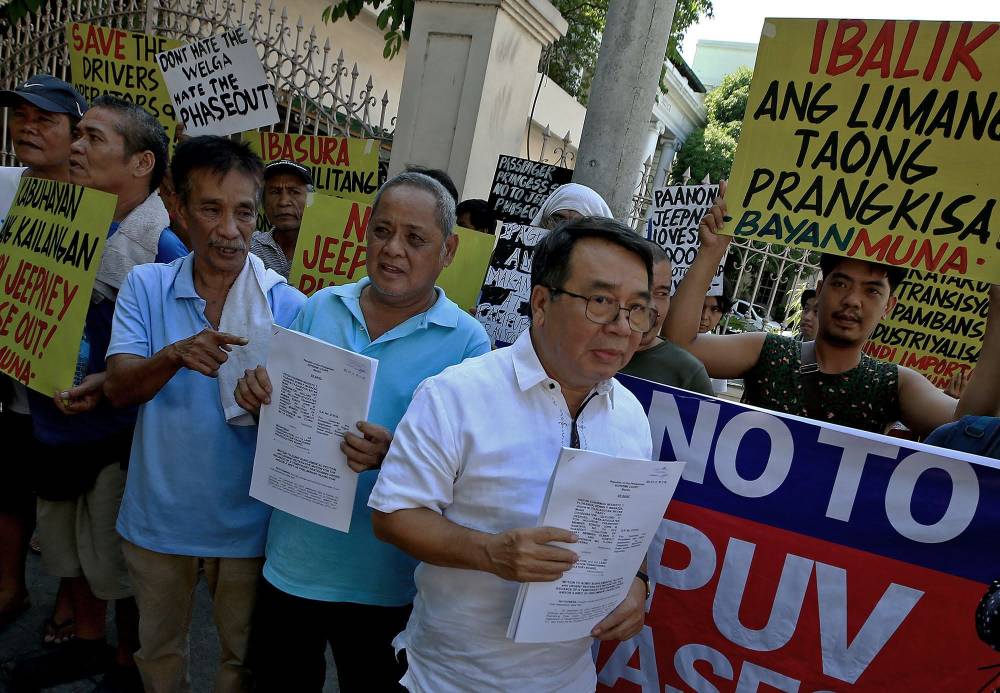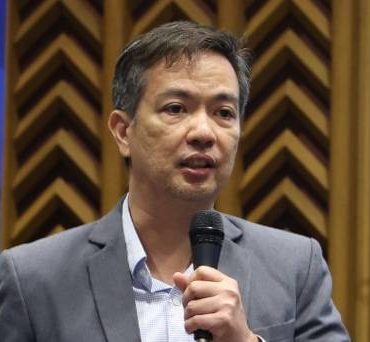No Supreme Court order vs PUV scheme deadline

The Supreme Court did not stay the enforcement of the government’s April 30 deadline for jeepney operators and drivers to consolidate themselves into transport cooperatives, or risk losing their franchises under the controversial public utility vehicle modernization program (PUVMP).
On the eve of the Tuesday deadline, transport and commuter groups led by the Pagkakaisa ng mga Samahan ng Tsuper at Operator Nationwide (Piston) and Komyut filed a last-minute petition urging the high tribunal to issue a temporary restraining order (TRO) against the Department of Transportation (DOTr) and the Land Transportation Franchising and Regulatory Board (LTFRB).
But no such order was released by the Supreme Court at press time on Monday.
The petitioners, including Bayan Muna party list, Para-Advocates for Inclusive Transport and No to PUV Phaseout Coalition of Panay, followed up on their Dec. 20 petition seeking to nullify the series of orders released by the DOTr and LTFRB orders since 2017 on modernizing public transportation.
Under the modernization program, jeepney operators and drivers are required to join or form cooperatives to ply their routes and to avail themselves of government assistance in modernizing and managing their fleets, among other services.
Eighth extension
This is part of a process toward the phaseout of traditional jeepneys and their replacement with eco-friendly but more expensive modern jeepneys which are to be partly subsidized by the government.
Moved by clamor from the public transport sector, President Marcos extended the last consolidation deadline by three months, from Jan. 31 to April 30, but warned there would be no more reprieves.
At the time, Transportation Secretary Jaime Bautista noted that this was the eighth extension of the deadline.
But transport groups led by Piston insisted that the consolidation policy should be scrapped entirely and on Monday staged another jeepney strike from April 29 to May 1 in cooperation with labor organizations observing Labor Day.
On Monday, the petitioners argued in their pleading that the TRO would prevent “grave and irreparable injury” to transport groups and the public, especially commuters.
They said the LTFRB itself “anticipates the havoc” once the consolidation policy was fully implemented due to the lack of a route rationalization plan, among other issues.
A ‘dire situation’
“The requirement of consolidation is untenable at this point and fundamentally unlawful. This is why there is continuing resistance from among the stakeholders and particularly jeepney drivers to forced franchise consolidation,” the petitioners said.
The latest LTRFB data also showed that a “significant number of jeepney routes across the nation still have no consolidated entities and thus risk having no operating jeepneys by May 1, 2024,” they added.
“The dire transportation situation in the country will come to a head soonest. Thousands of the commuting public—workers, students—will be affected with the reduction in public utility vehicles plying the streets,” they warned.
The petitioners representing jeepney drivers and operators told the high court that the consolidation and phaseout policy violated their freedom of association and rights to gainful employment and livelihood.
“Jeepney drivers are being compelled to join cooperatives through coercion or undue influence, such as threats of license revocation or denial of permits. As such, there have been many incidents of abuse and exploitation in the transport cooperatives,” they said.
They also pointed out that only imported jeepneys worth around P2.8 million each were available in the market while government subsidy per unit stood at only P160,000.
The petitioners said the modernization plan “will result in the surrendering of jeepney units by the operators and drivers which is tantamount to a confiscation of their property and deprivation of their main source of livelihood.”
Already exceeded target
“The DOTr policy originally encouraged the formation of transport cooperatives. The LTFRB issuances made it an absolute requirement. Clearly, there are no lawful means employed in the regulation,” they said.
On April 12, Transportation Undersecretary Andy Ortega reported during a public briefing that “almost 78 percent” of all PUV operators and drivers nationwide had already complied with the consolidation requirement.
This was hardly an improvement from the 76 percent nationwide consolidation rate cited in January by Bautista but well past the original 65-percent target. INQ

















